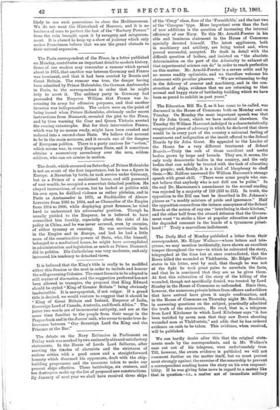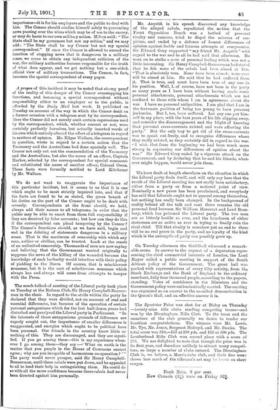We can hardly doubt after this that the original state-
ments made by the correspondents, and in Mr. Wallace's case cut out of his telegram, were unfortunately true. Till, however, the sworn evidence is published we will not comment further on the matter itself, but we must protest most strongly against the exercise of the censorship to prevent a correspondent sending home the story on his own responsi- bility. If he was giving false news in regard to a matter like that in question—i.e., a matter not of immediate military
importance—it is for his employers and the public to deal with him. The Censor should confine himself solely to preventing news passing over the wires which may be of use to the enemy, or may do harm to our own militafy action. Milton said: "The State shall be my governors but not my critics," and we may add: "The State shall be my Censor but not my special correspondent." If once the Censor is allowed to exceed the function of stopping news that is dangerous in a military sense, we cease to obtain any independent criticism of the war, the military authorities become responsible for the truth of what does appear, and we get nothing but a one-sided, official view of military transactions. The Censor, in fact, becomes the special correspondent of every paper.







































 Previous page
Previous page